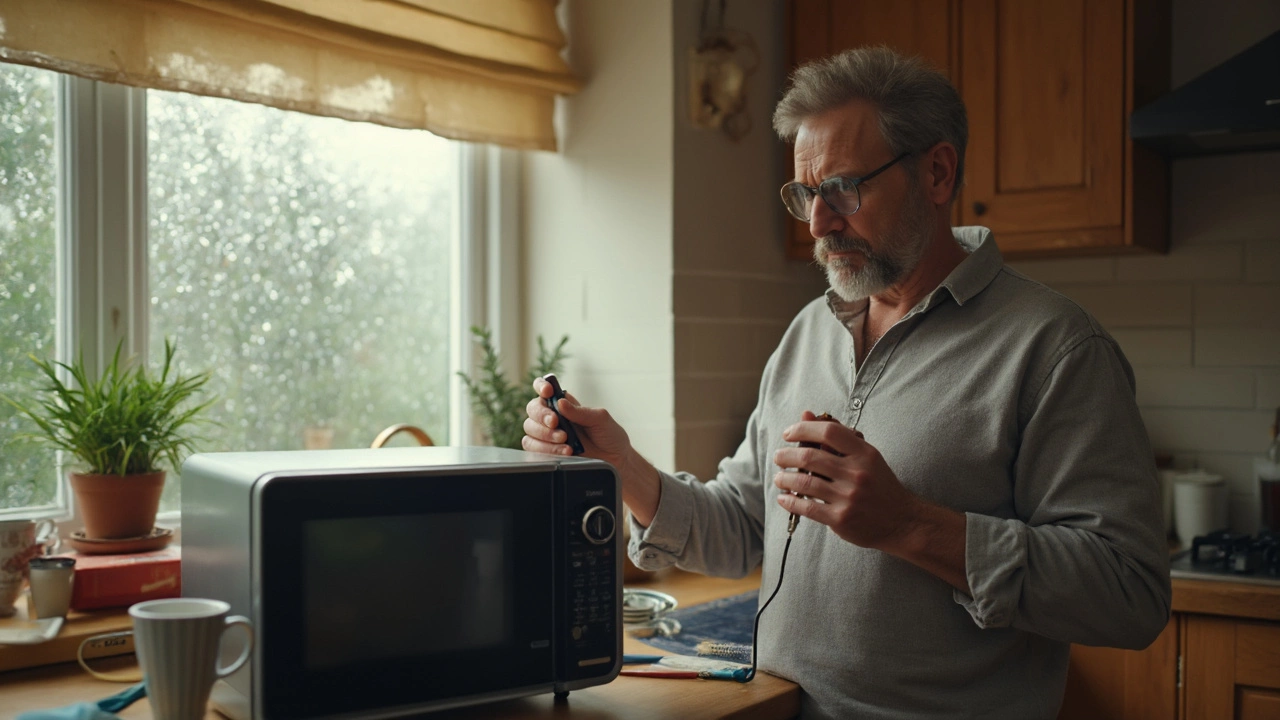Microwave Troubleshooting: Quick Fixes for Everyday Issues
Got a microwave that’s acting up? You’re not alone. Most households face a humming, sparking, or cold‑food problem at some point. The good news is you can often sort it out without calling a pro.
Typical Symptoms and What They Mean
Microwave not heating. This is the most common complaint. Usually the culprit is the magnetron – the part that creates microwaves. If the magnetron is burnt out, the unit won’t heat anything.
Humming or buzzing. A steady hum is normal, but a loud, high‑pitched whine often points to a faulty high‑voltage diode or a loose waveguide cover.
Sparks inside the cavity. Sparks can come from metal objects, but if you see them without anything metal inside, the waveguide cover might be cracked or the magnetron is failing.
Turntable not rotating. A broken motor or a worn‑out turntable coupling can cause this. It won’t affect heating, but uneven cooking gets annoying fast.
Step‑by‑Step Checks You Can Do Safely
1. Unplug first. Always disconnect power before any inspection. Safety first.
2. Inspect the door seal. A torn or warped gasket lets microwaves leak and can stop the unit from heating. Replace the seal if you see cracks.
3. Look at the waveguide cover. This small plastic piece sits inside the cavity. If it’s dirty or cracked, wipe it gently with a damp cloth or swap it out.
4. Test the turntable. Remove the plate and spin the motor shaft by hand. If it feels stuck, the motor likely needs a replacement.
5. Check the fuse. Many microwaves have a fuse that blows when power spikes. A quick visual check (look for a broken filament) can tell you if it’s blown.
6. Listen for the magnetron. When you run a short 30‑second cycle, you should hear a steady buzz. If the sound is weak or missing, the magnetron could be dead.
7. Do a quick reset. Some models have a reset button or simply need a 5‑minute unplug period to clear any error codes.
If any of these steps point to a faulty part – magnetron, diode, or motor – it’s usually best to call a qualified technician. Those components store high voltage and can be dangerous if mishandled.
When you do call a professional, let them know the symptoms you observed. Mentioning a “magnetron failure” or “broken turntable motor” helps them bring the right spare parts and speeds up the repair.
Remember, regular maintenance can stop many problems before they start. Keep the interior clean, avoid metal plates, and wipe the waveguide cover monthly. A well‑cared microwave typically lasts 7‑10 years, but if you notice the performance dropping after that, it might be time to think about a replacement.
With these simple checks you can often narrow down the issue and decide whether a DIY fix or a professional repair makes sense. No need to live with cold pizza any longer!
18 May 2025
·
0 Comments
A dead microwave can be a real headache, and a blown fuse is a common reason your microwave suddenly stops working. This article breaks down the easiest ways to tell if your microwave fuse is blown using practical steps and basic tools, plus tips for fixing it safely. You'll learn how to spot signs of a blown fuse, where it’s located, and how to replace it without calling an expensive repair tech. Be ready to get your microwave back in action quickly and safely. This isn’t just about appliances—it’s about saving time and money.
Read more
16 November 2024
·
0 Comments
Microwaves have become an essential part of modern kitchens, but like any other appliance, they can face issues that disrupt their functioning. This guide provides a straightforward approach to solving common microwave problems at home. Whether it's dealing with a non-heating microwave or strange noises, these easy tips and tricks will help you troubleshoot and potentially fix the issues. Empowering individuals with some basic electronics knowledge can save both time and money by delaying or eliminating the need for professional service.
Read more
25 August 2024
·
0 Comments
Microwaves are a staple in modern kitchens, but they're not invincible. Considerations about repairing them depend on factors such as the nature of the issue, the age of the appliance, and repair costs compared to buying new. This article delves into common problems, expenses, and when opting for a DIY fix makes sense. Read on to make an informed decision about whether your microwave deserves a second chance.
Read more




